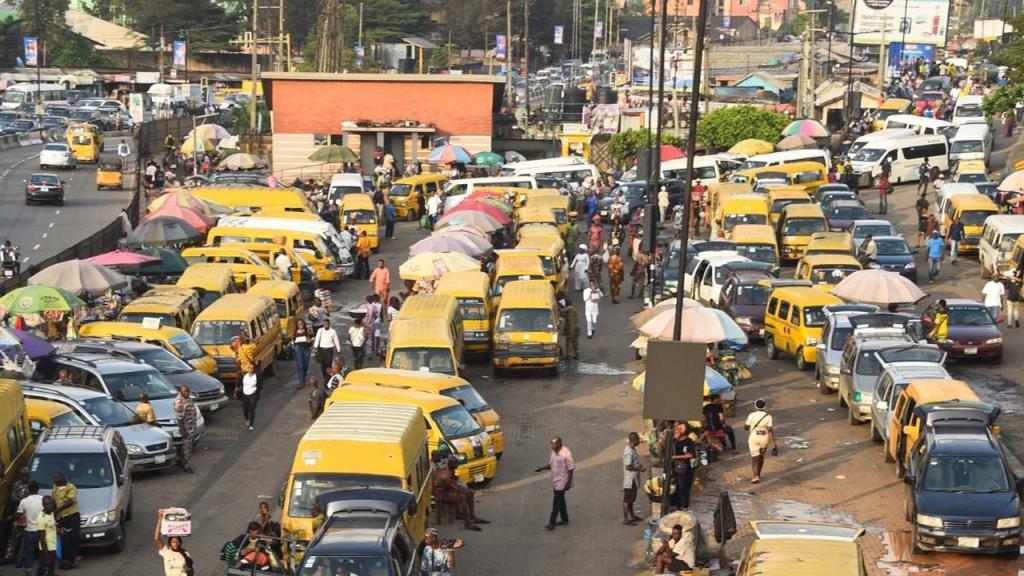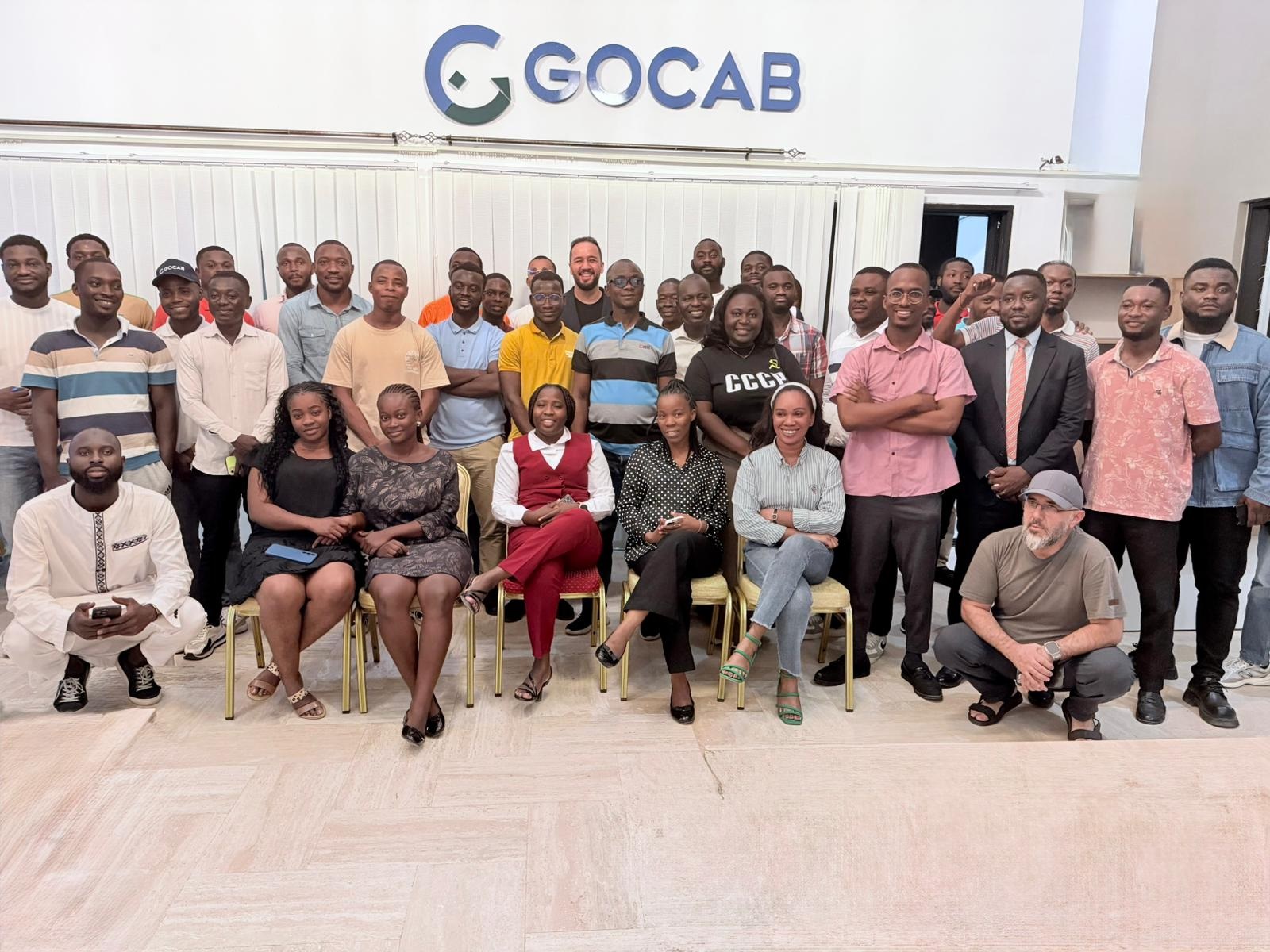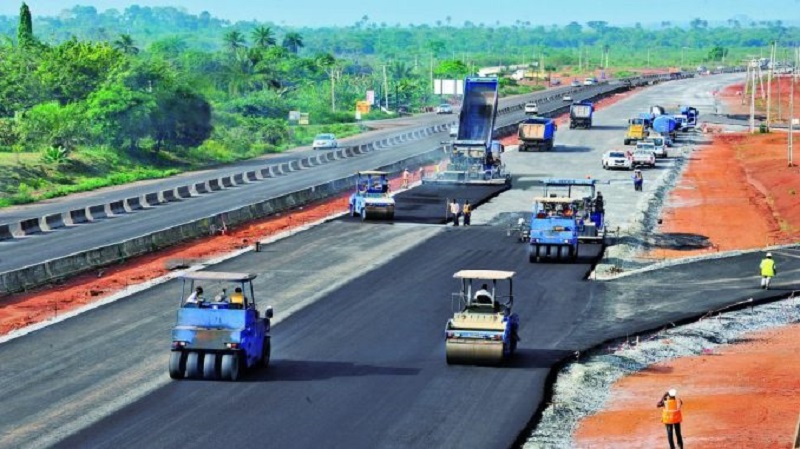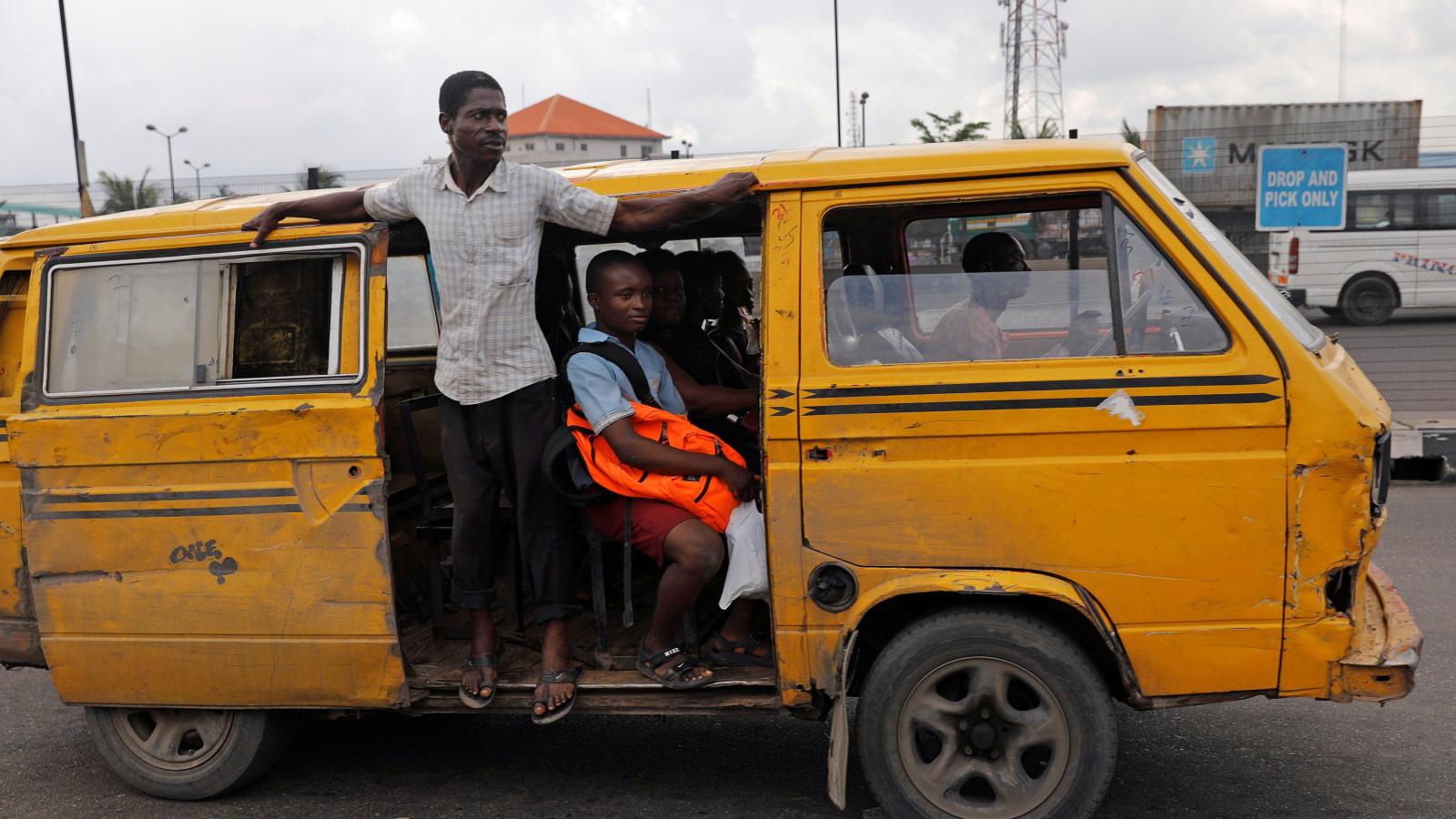Auto
Average Transport Fare Surges 98% After Fuel Subsidy Removal

By Adedapo Adesanya
* Cost of other alternatives transport soar in Review Month
** Ripples of fuel subsidy spur rise in food, rent, others
*** President Tinubu launches palliative measures to cushion effect
The average fare paid by commuters for bus journeys within the city per increased by 97.9 per cent from N649.59 in May 2023 to N1,285.41 in June 2023 as Nigerians grapple with a rise in prices after President Bola Tinubu announced the removal of fuel subsidy.
This was contained in the Transport Fare Watch June 2023 released by the National Bureau of Statistics (NBS) over the weekend, confirming the grim reality that the average commuting Nigerian faces on a daily basis.
In the report seen by Business Post, it was shown that on a year-on-year basis, the average cost of bus fare rose by 120.63 per cent from N582.61 in June 2022 to N1,285.41 in the review month.
In another category, the average fare paid by commuters for bus journey intercity rose by 42.1 per cent on a month-on-month basis to N5,686.49 in June 2023 from N4,002.16 in May 2023. On a year-on-year basis, the fare rose by 55.3 per cent from N3,662.87 in June 2022.
President Tinubu during his inauguration speech on May 29 announced that fuel subsidies, which gulped N4.3 trillion alone in 2022, were no more since the administration of Mr Muhammadu Buhari did not make provisions beyond June 2023 in the budget.
This caused an instant surge of over 40 per cent, creating a ripple effect in other basic needs like food, shelter, and other transportation alternatives over demand increase.
In air travel, the average fare paid by air passengers for specified routes’ single journeys increased by 4.9 per cent from N74,948.78 in May 2023 to N78,640.54 in June 2023. On a year-on-year basis, the fare rose by 40.2 per cent from N56,082.64 in June 2022.
The average transport fare paid on commercial motorcycle, otherwise known as Okada transportation was N618.52 in June 2023, 33.1 per cent higher than the rate recorded in May 2023 (N464.55). On a year-on-year basis, the fare rose by 48.3 per cent when compared with June 2022 (N416.97).
For water transport (waterway passenger transportation), the average fare paid in June 2023 increased to N1,366.22 from N1,045.15 in May 2023. On a year-on-year basis, it increased by 44.8 per cent from N943.26 in June 2022.
On state profile analysis, Bauchi state recorded the highest bus journey within the city (per drop constant route) in June 2023 with N1,700.00, followed by Jigawa with N1,570.00. On the other hand, Imo state recorded the least with N710.00, followed by Adamawa with N840.00.
For intercity bus travel (state route charged per person fare), the highest fare was recorded in Abuja with N8,500.00, followed by Anambra with N8,000.00. The least fare was recorded in Kwara with N3,400.00, followed by Zamfara with N3,700.00.
Similarly, Delta State recorded the highest air transport charges (for specified routes single journeys) with N87,000.00, followed by Kebbi with N83,500.00. Conversely, Abia recorded the least fare with N70,000.00, followed by Niger with N73,000.00.
Also, Lagos state had the highest motorcycle transport fare in June 2023 with N900.00, followed by Taraba with N850.00. The least fare was recorded in Edo with N250.00, followed by Bayelsa with N300.
In terms of water transport fare, the highest was in Rivers with N5,000.00, followed by Bayelsa with N4,500.00, while the least fare was recorded in Borno with N450.00, followed by Kebbi and Gombe with N500.00 each.
Analysis by zone showed that in June 2023, transport fares of bus journeys within the city recorded the highest in the South-South with N1,411.67, followed by the North-East with N1,318.33, while the South-East recorded the least with N1,162.00.
In terms of bus journey intercity, the South-East had the highest fare with N5,950.03, followed by the South-West with N5,916,67, while North-Central recorded the least with N5,398.57. The North-East recorded the highest fare of air transport in June 2023 with N80,650.00, followed by the South-South with N80,000.00, while the North-Central had the least with N76,357.14.
Also, commuters on a motorcycle (Okada) paid the highest fare in the North-East and South-West with N690.00 each, followed by the North-Central with N667.14, while the North-West recorded the least with N473.57. The South-South zone had the highest fare on water transport with N3,533.33, followed by the South-West with N1,275.00, while the North-East had the least with N783.33.
President Tinubu in a television broadcast on Monday, July 31, announced over $500 million financial package to assist households hurt by his economic reforms.
He defended his decision to scrap the fuel subsidy, saying it only benefited a few so-called elites, saying he was aware of the hardships that the decision caused citizens and promised his government was working to help.
The latest measures announced by the president include allocations for a review of the minimum wage, support for micro-, small- and medium-scale enterprises, and the purchase of 3,000 gas-powered buses to reduce the cost of transportation.
President Tinubu also ordered the immediate release of 200,000 metric tons of grains to households, in an effort to lower prices and 225,000 metric tons of fertilizers, seedlings and other inputs to farmers.
Auto
GoCab Receive $45m to Scale Ethical Mobility Financing Platform

By Dipo Olowookere
A funding package of up to $45 million has been secured by a mobility fintech firm, GoCab, to scale its ethical mobility financing platform across emerging markets.
A statement made available to Business Post disclosed that the funds comprise $15 million equity and $30 million debt, with the equity round co-led by E3 Capital and Janngo Capital. Others involved in the transactions were KawiSafi Ventures and Cur8 Capital.
GoCab operates a drive-to-own mobility fintech model that provides credit to gig-economy workers to buy their own car, bike and others in emerging markets.
It offers vehicles in drive-to-own programmes, mobile phone BNPL, motorbike financing for delivery couriers, and other value-added services through a single digital platform powered by proprietary technology.
With this financing support, GoCab plans to expand its operations and fleet, aiming for 10,000 active vehicles and $100 million in annual recurring revenue within the next 24 months.
Across five markets, GoCab now generates over $17 million in Annual Recurring Revenue (ARR) after just 18 months of operations and is on target to reach $50 million by end of 2026 and $100 million in 2027.
The company was established in 2024 by Mr Azamat Sultan and Mr Hendrick Ketchemen to address the limited access to ethical financing and vehicle ownership for gig-economy workers in Africa.
By combining mobility, technology, and inclusive finance, the organization enables drivers and delivery couriers to generate stable income while progressively gaining ownership of their vehicles.
By 2025, GoCab had taken a leading position in several African markets, supporting thousands of drivers and contributing to cleaner, more sustainable urban mobility systems.
“Transforming lives and improving the daily reality of thousands of families is the mission we have set for ourselves. We believe that capital can and must become a powerful force for transformation across Africa and emerging markets,” Mr Ketchemen said.
His counterpart, Mr Sultan, disclosed that, “For us, GoCab is about restoring dignity and opportunity through ownership.
“Across Africa, millions of people are locked out of both mobility and finance. We saw how capital was flowing everywhere except to the people who actually needed it to work.
“This round allows us to scale responsibly expanding access to fair, ethical financing while accelerating the transition to electric mobility, lowering carbon emissions, and building a more inclusive and sustainable future in close alignment with our investors.”
One of the investors, Mr Vladimir Dugin of E3 Capital, said, “The shortage of vehicles and the high cost of transportation remain two of the most pressing challenges across Africa. GoCab is addressing both head-on through a data- and technology-driven platform that expands access to mobility while improving efficiency at scale.
“Its rapidly growing EV fleet lowers costs for riders and drivers alike, while significantly reducing emissions. We are proud to support GoCab as it builds the leading pan-African mobility platform for the future.”
“We are proud to lead GoCab’s $15 million equity round, catalysing over $30 million in debt financing. We were impressed by their vision, their world-class team, and the quality of their execution.
“With this funding, GoCab now has the scale to deploy thousands of productive vehicles, each supporting a full-time income.
“With a clear operational roadmap toward 10,000 active assets and $100 million in recurring revenue, GoCab illustrates how ethical financing can translate into tens of thousands of decent jobs, household resilience, and sustainable growth at scale,” the chairman of Janngo Capital, Fatoumata Bâ, stated.
Also, a partner at KawiSafi Ventures, Mr Marcus Watson, said, “GoCab is building critical infrastructure for climate-smart mobility and the future of work in emerging markets. The combination of disciplined execution, strong unit economics, and a clear impact thesis makes GoCab a compelling platform for sustainable growth.”
Auto
Demolitions: inDrive Shares N75m Relief Packages to Displaced Lagos Residents

By Modupe Gbadeyanka
Over N75 million worth of relief materials have been provided by foremost ride-hailing platform, inDrive, to residents of Lagos State displaced by recent demolitions in the metropolis.
The company partnered with Tolu Aniwura Welfare Foundation (GenerousMe) to distribute essential food, clothing, and school supplies to more than 2,000 affected individuals and families.
At the distribution of the items at St. Paul Catholic Church, Ebute-Metta, the Country Representative for inDrive Nigeria, Mr Timothy Oladimeji, explained that the initiative reflects the company’s people-first approach and its commitment to responding directly to urgent community challenges while maintaining a focus on long-term empowerment across its markets.
“At inDrive, we believe that our responsibility goes beyond providing mobility services; it extends to standing with communities during moments of need.
“The recent demolitions left many families vulnerable, and through our partnership with GenerousMe, we were able to respond quickly and responsibly. This intervention reflects our commitment to fairness, empathy, and ensuring that people remain at the centre of everything we do,” Mr Oladimeji said.
It was gathered that the support also extended to individuals who had previously benefited from inDrive-backed social impact programmes, reflecting the company’s continued commitment to empowering vulnerable communities across Nigeria.
The relief packages included essential dry food items such as rice, beans, garri, noodles, spaghetti, cooking oil, tomato paste, seasoning cubes, and salt. Beneficiaries also received clothing, blankets, sleeping mats, mosquito nets, rechargeable lamps, power banks, and baby care items, as well as school packs containing bags, exercise books, and writing materials for children.
In his remarks, the Partnerships Lead for GenerousMe, Mr Adetola Alade, said, “Partnering with inDrive enabled the timely and coordinated delivery of aid. We prioritize speed and collaboration in responding to urgent humanitarian needs, and working with inDrive on this project was a great experience.”
Auto
UK to Facilitate Quick Return of Stolen $9.5m for Abuja-Kano Road

By Adedapo Adesanya
The United Kingdom is facilitating a quick process to return $9.5 million in recovered stolen funds to Nigeria to help fund the completion of the ongoing Abuja-Kano Road.
According to a statement on Friday, His Majesty’s Attorney General for Jersey, Mr Mark Temple, signed a Memorandum of Understanding (MOU) in December 2025 to facilitate the return of the loot.
Recall that on November 29, 2023, the Attorney General applied to the Royal Court of Jersey under the Forfeiture of Assets (Civil Proceedings) (Jersey) Law 2018 in respect of tainted property held in a Jersey bank account. On January 12, 2024, the Royal Court granted a forfeiture order after determining that the funds were more likely than not the proceeds of a corrupt scheme in which third-party contractors diverted government monies for the benefit of senior Nigerian officials and their associates.
The MOU builds on two previous agreements between Jersey and Nigeria, under which more than $300 million has already been repatriated to support three major infrastructure projects: the Lagos-Ibadan Expressway; the Second Niger Bridge; and the Abuja-Kano Road. The first two projects are now complete.
Under the terms of the MOU, the forfeited funds will contribute to the final stages of the Abuja-Kano Road, a 375 km highway that will provide a vital link between Nigeria’s capital and its second-largest city.
Speaking on the development, Mr Temple, said: “This successful return demonstrates the strength of our civil forfeiture legislation as a powerful tool in the fight against corruption. I thank the Nigerian authorities for their cooperation and the Economic Crime and Confiscation Unit in my Department for their unwavering commitment to recover the proceeds of crime.”
Adding his input, the Attorney General of the Federation and Minister of Justice, Mr Lateef Fagbemi said, “The successful recovery and repatriation of the forfeited assets, underscores the effectiveness of Nigeria’s collaborative efforts with its international partners in ensuring that there is no safe haven for illicitly acquired wealth or assets moved to foreign jurisdictions.”
“I want to, on behalf of the Government of the Federal Republic of Nigeria, thank the Bailiwick of Jersey for the cooperation accorded Nigeria during the Recovery exercise. I want to further assure the Bailiwick of Jersey, that the repatriated assets will be judiciously utilized in line with the terms of the executed Memorandum of Understanding,” he added.
-

 Feature/OPED6 years ago
Feature/OPED6 years agoDavos was Different this year
-
Travel/Tourism9 years ago
Lagos Seals Western Lodge Hotel In Ikorodu
-

 Showbiz3 years ago
Showbiz3 years agoEstranged Lover Releases Videos of Empress Njamah Bathing
-

 Banking8 years ago
Banking8 years agoSort Codes of GTBank Branches in Nigeria
-

 Economy3 years ago
Economy3 years agoSubsidy Removal: CNG at N130 Per Litre Cheaper Than Petrol—IPMAN
-

 Banking3 years ago
Banking3 years agoSort Codes of UBA Branches in Nigeria
-

 Banking3 years ago
Banking3 years agoFirst Bank Announces Planned Downtime
-

 Sports3 years ago
Sports3 years agoHighest Paid Nigerian Footballer – How Much Do Nigerian Footballers Earn















Pingback: Average Transport Fare Surges 98% After Fuel Subsidy Removal – African Budget Bureau